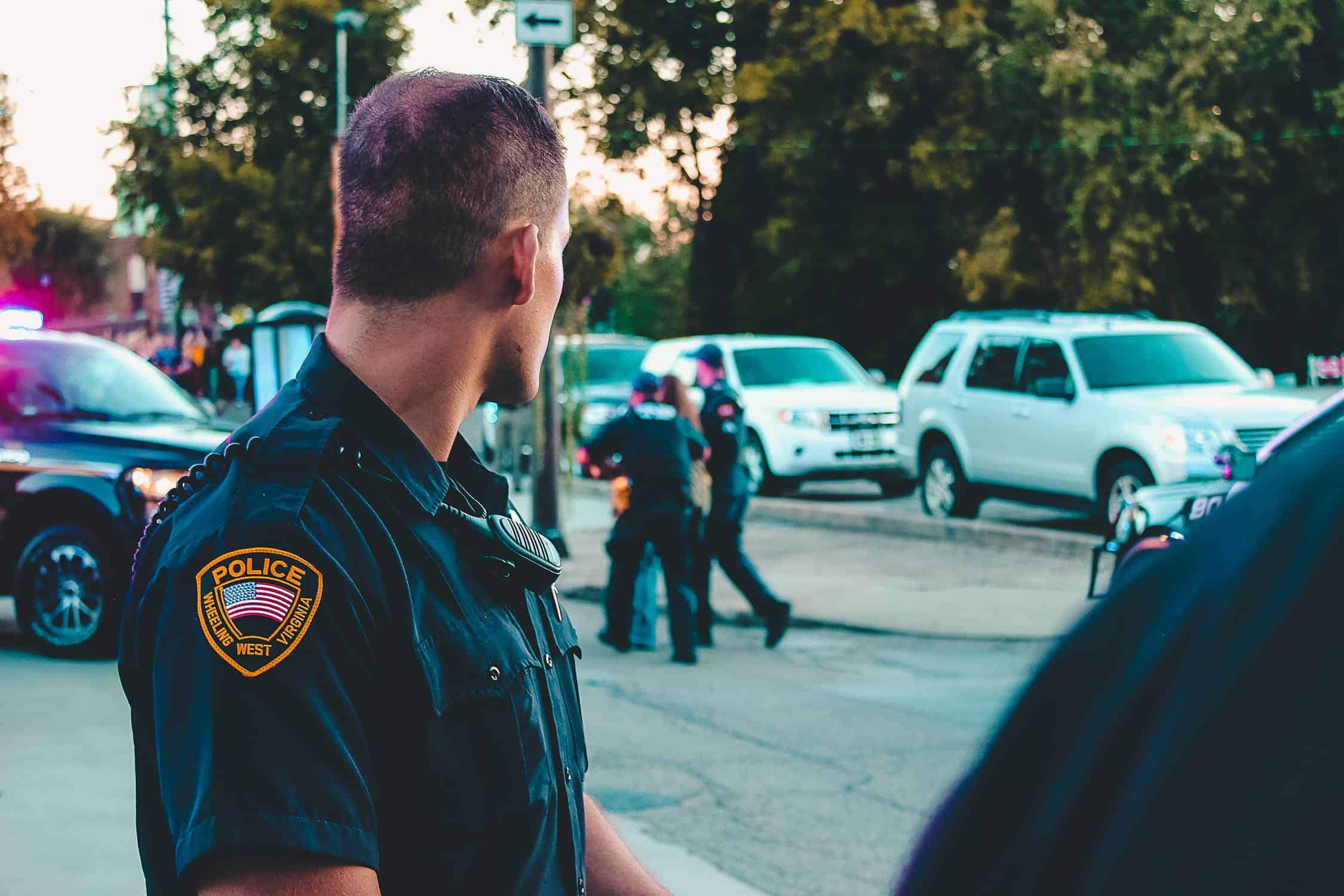The is an old Roman adage: si vis pacem, para bellum. If you want peace, prepare for war. And this does seem to be an adage that Trump is following, as protests only seem to be getting worse this week. He has threatened to “deploy the United States military and quickly solve the problem for [cities and states].” The police are trying to stop the protesting, but it continues to spread. Now, there have been protests in 380 cities, across all 50 states. And so Trump’s administration seems to be preparing for war inside our country, all for the sake of peace.
But this Roman adage has never been a part of Christian teaching. Going back to St. Augustine, Christian political thought has only considered war as a last resort. And while our government is not waging a literal war against its citizens, the militarization of the police since 2001 has allowed them to amass military-grade weapons and vehicles, such as stun grenades and tear gas canisters. After police tear-gassed peaceful protestors, Trump promised to deploy “thousands and thousands of heavily armed soldiers, military personnel and law enforcement officers,” in order to contain the protests. And if the military is going to get involved (as the National Guard already is), then we as Christians are obligated to ask whether this is truly just.
Just War Theory was first outlined by St. Augustine and then developed by St. Thomas Aquinas. War and the use of violence only become permitted in the quest for peace. Even though police intervention this week isn’t a formal war, we should hold the actions of all involved under the rubric of the just use of violence. Unlike the Roman adage,the Catechism of the Catholic Church says:
Peace is not merely the absence of war, and it is not limited to maintaining a balance of powers between adversaries. Peace cannot be attained on earth without safeguarding the goods of persons, free communication among men, respect for the dignity of persons and peoples, and the assiduous practice of fraternity. (CCC 2304)
“Justice” is a difficult word to fully define, but the Catholic Church insists that a just nation must have peace. In 1972, on the fifth World Day for Peace, St. Paul VI said unequivocally, “if you want peace, work for justice.”
And yet, as the police seek peace, they seem to have the mindset of preparing for war. Patrick Skinner, a former CIA officer who now trains police, spoke this week about that mindset: “Our training is spot on: We’re in a war on crime, and it’s us versus them, and our neighbors are sheep we need to protect. You hear the term civilians. I thought we were all civilians! … Most 911 calls I go to are not crimes. They may become crimes, but our job is to stop it. We’re taught that it’s a war. It’s not. But it’s becoming a war.”
We, as Christians, should be insisting that our police are acting for justice. But while nurses and doctors continue to call for better protective equipment, the police have turned out in full riot gear. In communities where a virus has been ravaging the lungs of the poor and vulnerable, the police have been shooting out tear gas. Protestors and journalists are arrested, curfews are being put in place. We seem to be far away from peace, and the Trump administration has threatened to get there by mobilizing more police and military.
The Catechism outlines four strict conditions for the “legitimate defense by military force,” which must be held “at one and the same time” (CCC 2309).
- The damage inflicted by the aggressor on the nation or community of nations must be lasting, grave, and certain.
What has been the damage inflicted by the protests? Yes, there has been wide-spread looting. I can see it from outside my window in the Bronx. But damage to property is neither lasting nor grave. As Ian Peoples SJ wrote this week, “destruction of property is not the destruction of life. We must not cite broken windows as equal to the broken body of George Floyd.”
The protests started after the killing of George Floyd by a Minneapolis police officer. Deaths like his, rather than rare, have become too common in the United States. Patrick Saint-Jean SJ says without reservation, “being Black in America should not mean we walk in fear of death. But it does. It should not mean we have less access to breath. But it does.” The protests, which by the wide majority are peaceful, speak against the violence done to the vulnerable in the United States.
- All other means of putting an end to it must have been shown to be impractical or ineffective.
Patrick Skinner, cited earlier, points to the need for a mindset that everyone in a city is your neighbor. “We all matter or none of us do. I live here. I can’t know everybody in Savannah. But I call everyone my neighbor, because they literally are. … You don’t sit for eight minutes with your knee on the neck of your neighbor.” Police in Camden followed this mindset, walking with protestors in a peaceful demonstration.
But in many cases, the police themselves seem to be escalating the violence. Police have been using tear gas, paint canisters, and flash-bang shells against protestors, but also against people standing on their porches and even journalists. In Oakland, a student-led protest was peaceful until police intervened. In Asheville, police destroyed a city-approved medical station. They, unfortunately, do not seem to have given much effort to nonviolent efforts.
The harm done during the protests is more than property; people are dying in these protests. Yet at the same time, this threat to the sanctity of human life has only been intensified by police action. As Minneapolis City Council member Jeremiah Ellison said to the New York Times, “No one was looting anything in the first night of this protest, no one was lighting anything on fire on the first night of this protest, and yet the response from the police was incredibly brutal,” he said. “The original provocation to street violence was from our officers.”
- There must be serious prospects of success.
What does ‘success’ look like for police (and potentially military) intervention? The protests were sparked by George Floyd’s death, but their fuel has been decades (and, arguably, centuries) in the making. Many call for an end to police brutality that is more often lethal for black Americans. As Vox reports, black Americans are most likely to be killed by police, police killings have not declined in the last seven years, and the number of police killings does not seem to have any connection to the number of violent crimes in a city. If success means the end of protesting, then the police (and the government) need to address why the protests started in the first place.
If we want peace, St. Paul VI reminds us, we need justice. ‘Success’ should not be counted by how few protests there are, but by how much our systems institutionalize justice. Protestors are demanding systemic and policy changes, such as the NAACP’s list of demands. We can hope for peace if the government is willing to listen to demands and respond accordingly. Increasing (military) force will never be able to respond to the root causes of the protests.
- The use of arms must not produce evils and disorders graver than the evil to be eliminated.
Yes, people in the protests are committing crimes, such as looting and violence. Likewise, police in the protests are knocking down and using pepper-spray against unresisting people. Both cause harm, and we can argue both are evil. But these are not equal actions. The police carry the authority of the state, which has for centuries oppressed black bodies. And the military, should they intervene, will increase rather than eliminate these evils. No one should be looting. But it is the particular duty of government to be working for justice, and we should be outspoken against government-sanctioned actions that produce and perpetuate evil.
The protests are arguing for systemic changes, for a need to re-examine things such as police intervention, criminal justice, and economic policy. Amartya Sen, political philosopher and economist, looks to this need in his work The Idea of Justice. He writes, “in assessing our lives, we have reason to be interested not only in the kind of lives we manage to lead, but also in the freedom that we actually have to choose between different styles and ways of living.” It is not enough for some people in our country to be safe; all of us should have the choice about how we want to live out our lives. Therefore, the question of justice involves everyone. Sen concludes simply, “If someone has the power to make a difference that he or she can see will reduce injustice in the world, then there is a strong and reasoned argument for doing just that.”
The police, and President Trump, appeal to the need for law and order. But justice is not the same as law. St. Aquinas, in a phrase picked up by Martin Luther King Jr., states “lex iniusta non est lex.” An unjust law is no law at all. That is, when a human law violates the divine laws of God, it should not be considered as a proper law to be followed. And if human law allows for the unwarranted murder of a black man in the streets, and a black woman in her own bed, then we should feel compelled to question that law.
Where do the protests leave us? President Trump on Tuesday visited the shrine to Pope St. John Paul II, trying to garner support from Catholics. But his calls for increasing violence and force go against Catholic teachings, which Archbishop Wilton Gregory made clear. We should be looking not to the Romans, but to Christ. Blessed are the peacemakers. And if we want peace, we should not prepare for war. We should work for justice.
—
Photo by Rosemary Ketchum


